A tropical depression out over the Atlantic Ocean became a tropical storm while another system is also forecast to strengthen on Monday as the peak of the hurricane season is just days away.
The U.S. National Hurricane Center (NHC) in Miami said the two systems in the central and eastern part of the Atlantic basin are gathering strength, with one system already generating a warning off the coast of continental Africa.
A tropical storm warning has been issued for the Cabo Verde Islands due to Tropical Depression 18, according to the NHC.
HURRICANE CENTER MONITORING 4 AREAS FOR DEVELOPMENT, INCLUDING 2 WITH 'HIGH' CHANCES
As of 2 p.m. EDT, the NHC said the system was located 165 miles east of the islands, with maximum sustained winds of 35 mph. It was moving west-northwest at 10 mph.
"“Depression approaching the Cabo Verde Islands,” the NHC said. “Expected to bring tropical storm force winds and heavy rainfall to those islands tonight.”," the NHC said.
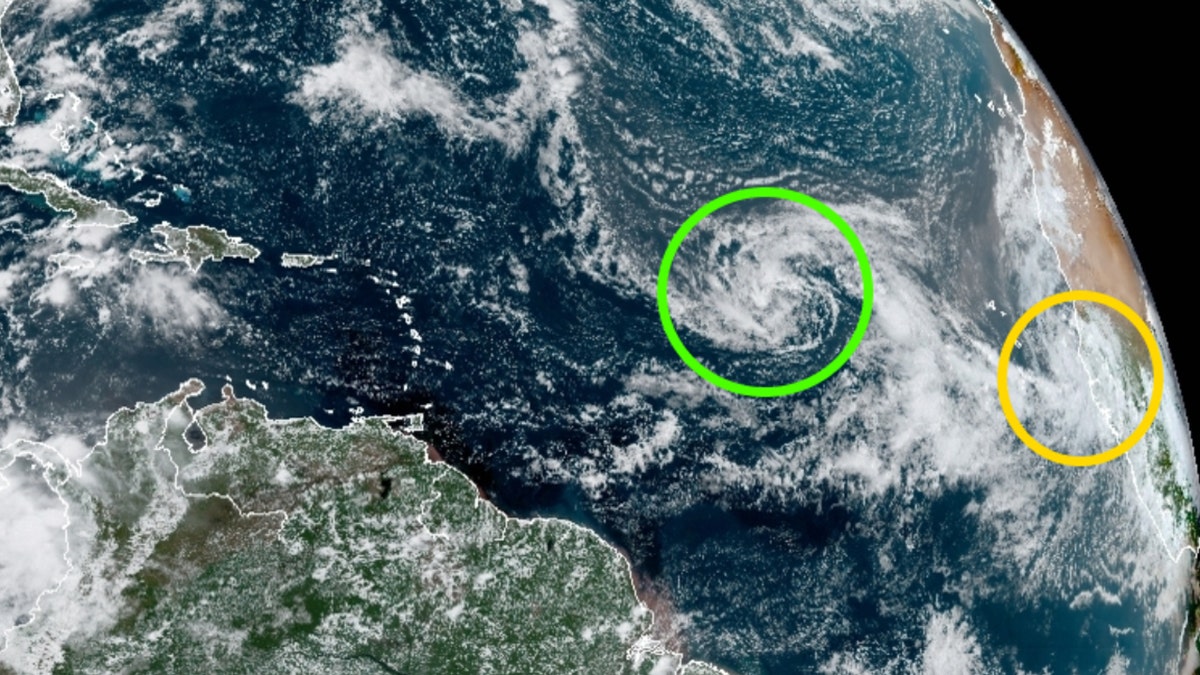
Two tropical depressions out over the Atlantic Ocean are forecast to become tropical storms on Monday. (NOAA)
The depression was forecast to bring 2 to 5 inches of rain to the Cabo Verde Islands through Tuesday.
Tropical-storm-force winds and heavy surf are also forecast to batter the islands into Monday night.
The second system, Tropical Depression 17, strengthened into Tropical Storm Paulette on Monday.
HURRICANE SEASON COMPUTER MODELS SHOW NEW SYSTEMS DEVELOPING OFF AFRICA
Forecasters said as of Monday morning it was centered 1,205 miles east of the Northern Leeward Islands. Maximum sustained winds were measured at 40 mph as it moved west-northwest at 3 mph.
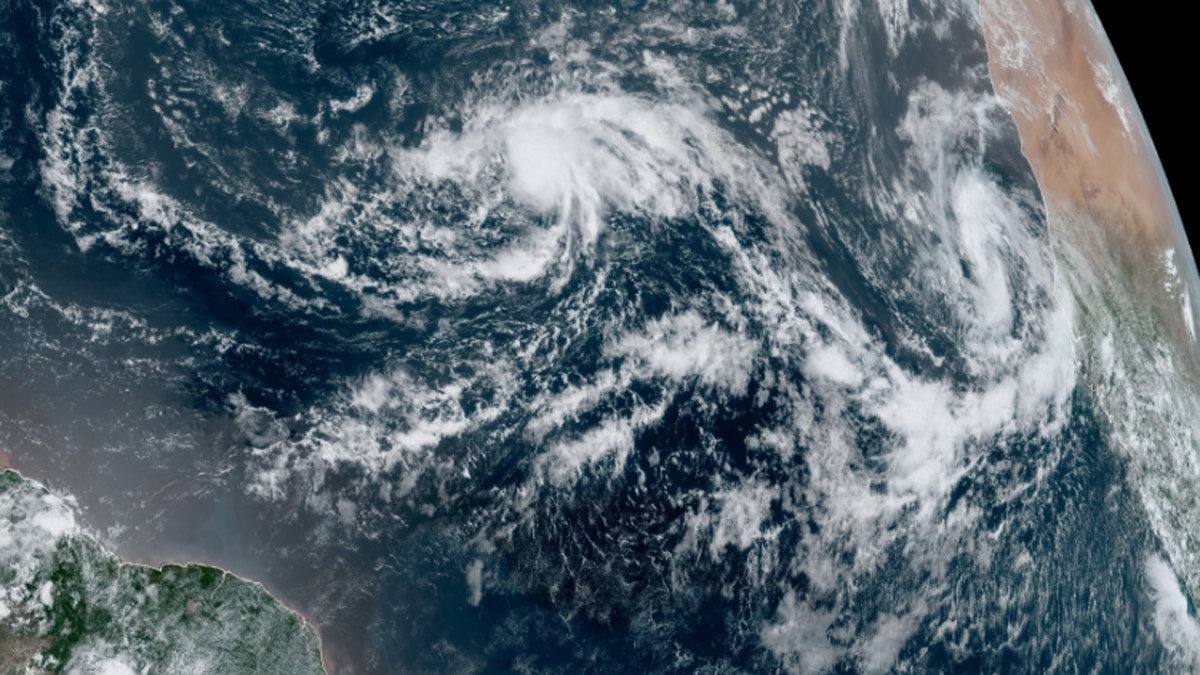
Tropical Storm Paulette can be seen over the central Atlantic Ocean on Sept. 7, 2020. (NOAA/GOES-East)
"Modest additional strengthening is expected during the next couple of days." the NHC said.
There are no coastal watches and warnings in effect as Paulette remains far out over open water.
Historically, September produces the most Atlantic Ocean basin tropical activity.
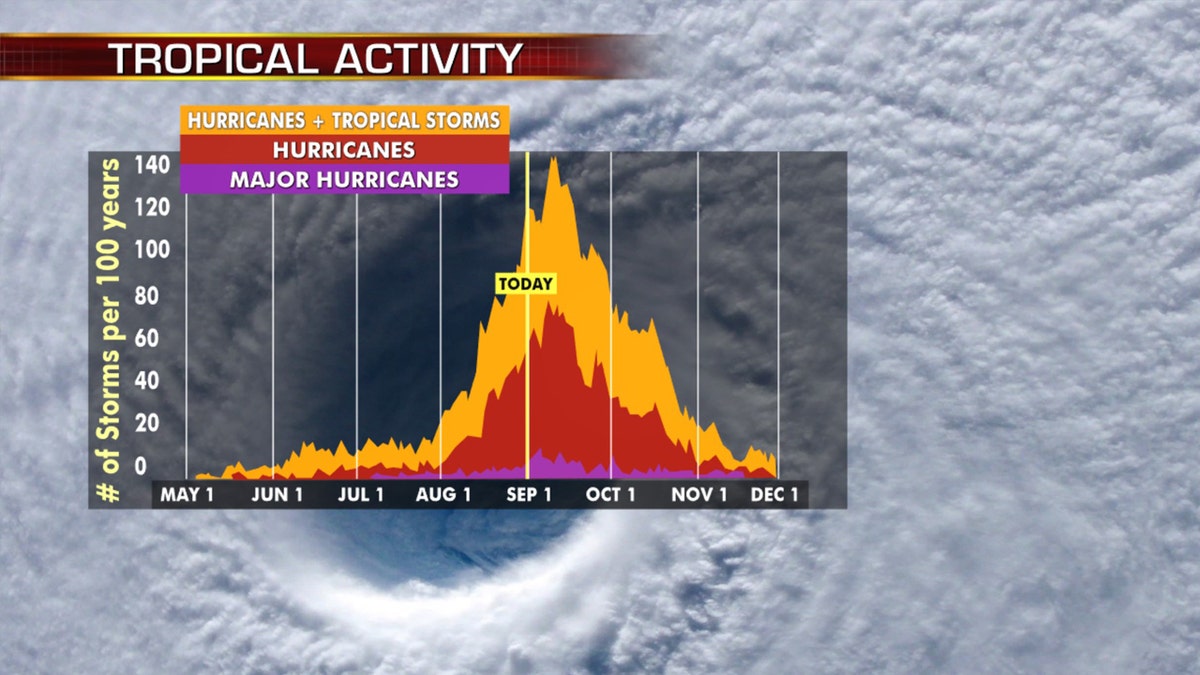
Hurricane season peaks in the month of September. (Fox News)
Paulette has set a record for the earliest "P"- named tropical systems, according to Colorado State University hurricane research scientist Phil Klotzbach.
The previous record for the earliest 16th Atlantic named storm was Philippe, which formed Sept. 17, 2005, Klotzbach tweeted early Monday.
If the other tropical depression strengthens on Monday into a tropical storm it would also set a record for the earlier "R"-named storm with the name of Rene. The previous record for the earliest 17th Atlantic named storm was Rita, which became a tropical storm on Sept. 18, 2005.
CLICK HERE FOR MORE WEATHER COVERAGE FROM FOX NEWS
This 2020 season has been active so far, with several storms breaking records for their respective letter for how early they formed.
The two most recent storms, Nana and Omar, were the earliest 14th and 15th named storms on record, beating the 2005 arrivals of Nate on Sept. 6 and Ophelia on Sept. 7, according to Klotzbach.
Hurricane season has now entered its busiest month, as activity historically climbs through Sept. 10, when it peaks and starts to slowly go back down.
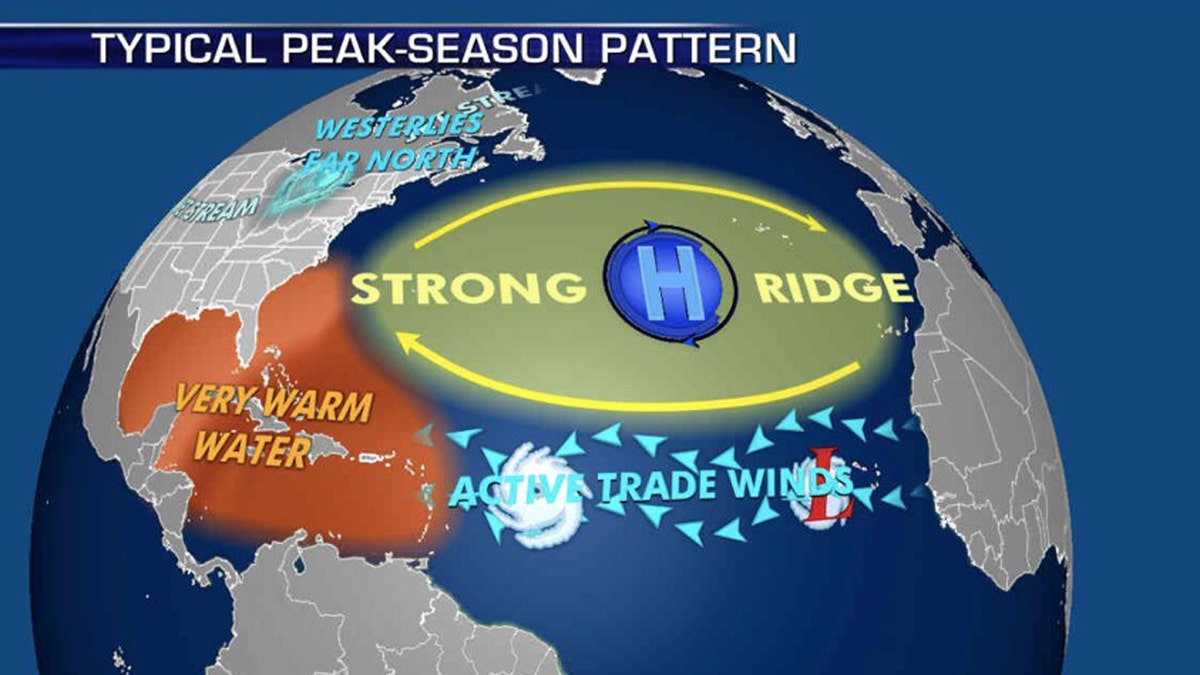
The patterns during the peak of hurricane season that influence where storms travel. (Fox News)
Historically, about two-thirds of all Atlantic hurricane activity happens between Aug. 20 and Oct. 10, Klotzbach tweeted earlier this month.
NOAA forecasters are now calling for up to 25 named storms with winds of 39 mph or higher; of those, seven to 10 could become hurricanes. Among those hurricanes, three to six will be major, classified as Category 3, 4, and 5 with winds of 111 mph or higher.
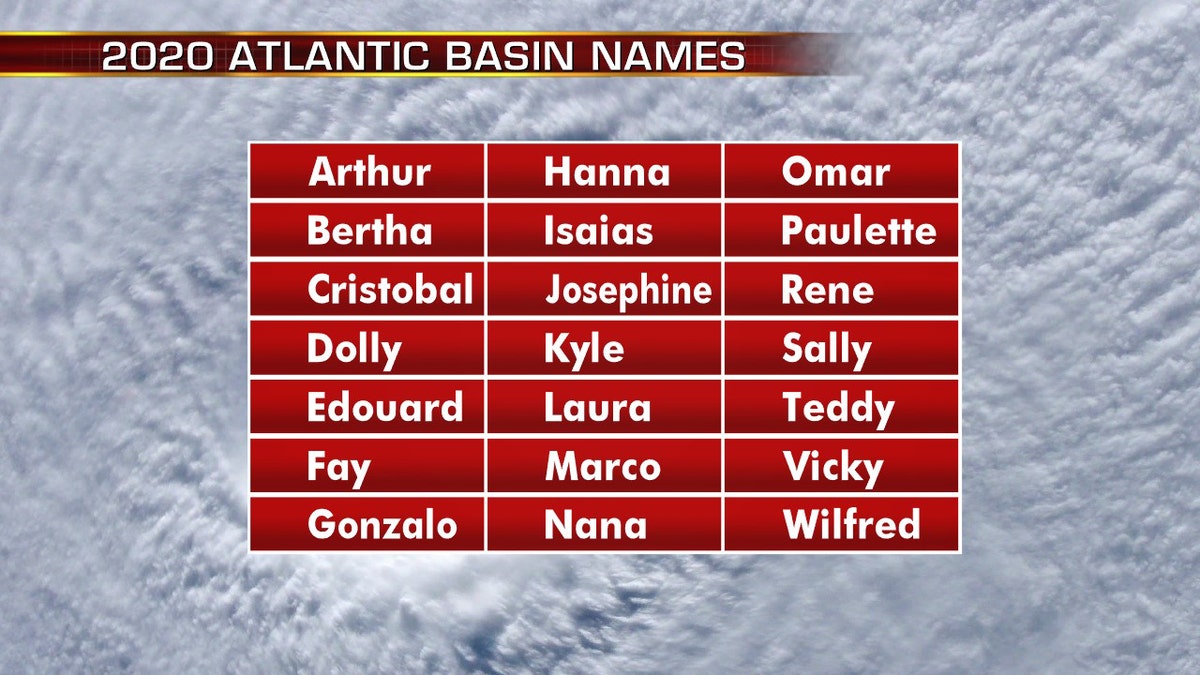
The names for the 2020 Atlantic hurricane season. (Fox News)
That's far above an average year. Based on 1981-to-2010 data, that is 12 named storms, six hurricanes and three major hurricanes. So far this year, there have been 16 named storms, including five hurricanes.
CLICK HERE FOR THE FOX NEWS APP
The 2020 Atlantic hurricane season runs from June 1 to Nov. 30 and includes the names Arthur, Bertha, Cristobal, Dolly, Edouard, Fay, Gonzalo, Hanna, Isaias, Josephine, Kyle, Laura, Marco, Nana, Omar, Paulette, Rene, Sally, Teddy, Vicky and Wilfred.
Fox News' Adam Klotz and Brandon Noriega contributed to this report.










































